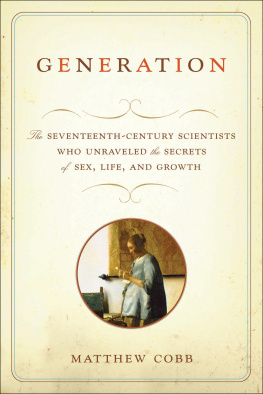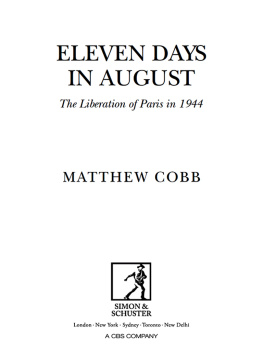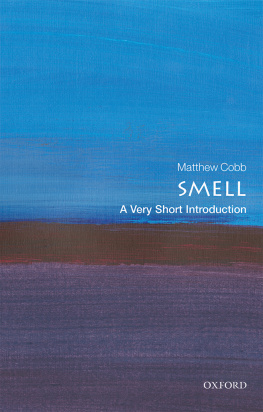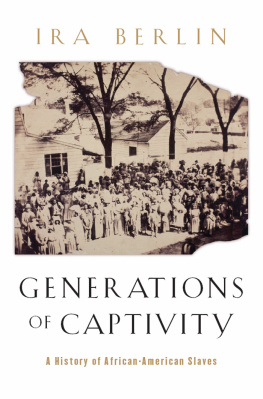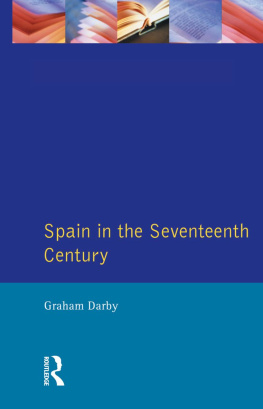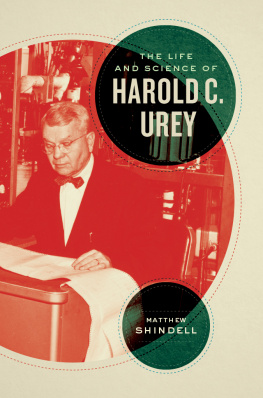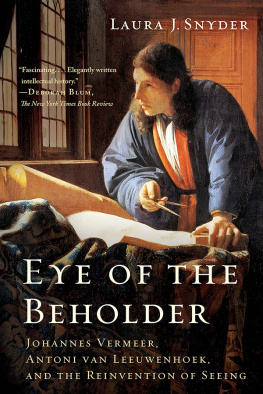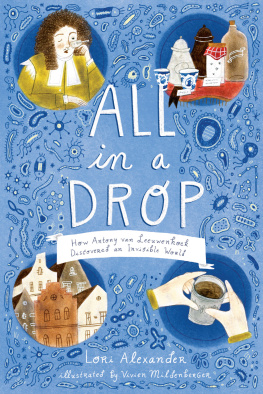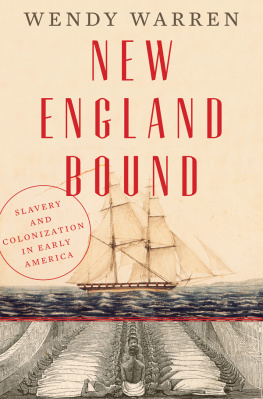All rights reserved. No part of this book may be used or reproduced in any manner whatsoever without written permission from the publisher except in the case of brief quotations embodied in critical articles or reviews. For information address Bloomsbury Publishing, 175 Fifth Avenue, New York, NY 10010.
All papers used by Bloomsbury Publishing are natural, recyclable products made from wood grown in well-managed forests. The manufacturing processes conform to the environmental regulations of the country of origin.
Cobb, Matthew.
Generation : the 17th-century scientists who unraveled the secrets of sex, life, and growth / by Matthew Cobb.1st U.S. ed.
p. cm.
Includes bibliographical references.
1. ConceptionResearchHistory17th century. 2. ReproductionResearchHistory17th century. I. Title.
First U.S. Edition 2006
The people who deserve my greatest thanks are the seventeenth-century thinkers whose work this book describes. Some of these men have been living in my head for nearly seven years, others have forced their way in during the eighteen-month passage from initial idea to completed manuscript. I have tried to hear the voices behind the printed page, to understand their motivations, to sense the personality that drove the hand that scratched ideas on to paper all those centuries ago, and above all to imagine what each one of them did after he put down his pen. Sometimes, the lack of a portrait or of anything more than a few scraps of biographical information made this incredibly difficult. One trick I adopted to force the characters into mental focus was to imagine which actor would best portray each of them (for what it's worth my final list was: De Graaf-Tom Cruise; Harvey - William Hartnell; Leeuwenhoek - Warren Clarke; Redi Cary Grant; Steno Alan Rickman; Swammerdam Nick Cage; Thvenot Pete Postlethwaite). It has been a privilege to walk with them through their science, retracing their steps towards understanding.
This book would not exist without the perpetual enthusiasm of my agent, Peter Tallack, who was immensely helpful during the long months of writing the proposal, and the insight of my UK editor, Andrew Gordon, who nudged me towards the idea of writing a book about generation. I am incredibly grateful to both of them. My wife, Tina, and my two children put up with me disappearing into the seventeenth century for long periods, while my mother, brother and sister all gave me the support I needed. Allen Moore, then of the Faculty of Life Sciences (FLS) at the University of Manchester, seemed to believe my assurances that the book would not get in the way of my day job (studying the sense of smell in maggots - really), while the members of the Centre for the History of Science, Technology and Medicine in FLS generously encouraged an amateur. Colleagues and friends from my years in Paris, in particular Jean Gayon, Michel Morange and Emma Bayamack-Tam, were supportive of my work in its earliest phases, as were two people I have never met - Clara Pinto-Correia of Lisbon and Edward G. Ruestow of Boulder, Colorado.
My thanks go to librarians in Paris, London, Manchester, Leiden and Gttingen. In particular, Christine Woollet at the Royal Society of London, the staff at the Bibliotheque Inter-Universitaire de Medecine in Paris and at the Special Collection of the John Rylands University Library of Manchester have all been enormously helpful. Perhaps my biggest thanks go to the pioneering spirits at the Rylands Library who decided, long before it was widespread, to subscribe to a massive range of electronic databases. As a result, I could read seventeenth-century texts or search for obscure references from home, in the middle of the night, at the click of a mouse. Reading on-screen or from the print-out of a PDF lacks the delicious contact with history provided by centuries-old paper and can never replace the magic of original manuscripts, but it can be so much more convenient. Joanne McNamara, Ana Paunovic, James Thorne and Marco Zito all translated passages from Latin, making up for my own ignorance. Many other people provided help by answering my questions, in particular Catherine Blackledge, Nicholas Dew, Paula Findlen, Marian Fournier, Cynthia Pyle, Benjamin Roberts and Jane Stevenson. My one regret is that, despite repeated attempts, I could not make contact with Estelle Cohen, whose interests overlap much of this book. The Bibliographical Society generously gave me a grant to study Swammerdam's manuscripts in Leiden in December 2004, where I was able to resolve a number of questions a previous visit had left unanswered, and to feel a kind of communion with Swammerdam's strange soul by walking the cobbled streets of his Leiden, handling his letters and drawings, and tracing his academic career in the university's neat ledgers.
I had the great luck to see some of the episodes in this book brought to life. The Bristol-based Full Beam Visual Theatre's production The Man Who Discovered That Woman Have Eggs - the work of Lizzie Philps, Adam Fuller and Rachel McNally - gave me the real privilege of watching the fragmented impressions provided by history turn into living, and hilarious, theatre. Roger Short was incredibly generous in providing me with a copy of his excellent film of Harvey's dissection of a pregnant hind, and allowing me to put a downloadable copy of it on www.egg-and-sperm.com where it will, I hope, attract the worldwide audience it deserves.
Andrew Gordon and my US editor, Gillian Blake, both helped streamline my ideas, reorganising chapters and suggesting painless and stylish cuts. My thanks also go to Edwina Barstow and the designer and proofreader, who made the final stages of production go so smoothly. Roger Short, Cathy McCrohan, Tim Fairs, James Ladyman and Christina Purcell all read through the manuscript and pointed out howlers, both grammatical and factual. My thanks to all of them - I still blush about what might have happened without their help. However, the errors that remain are entirely the responsibility of my darling daughters, Lauren and Evie.
Gerard Blaes (1625-92) Head of the Amsterdam Athenaeum school, where he taught Steno and apparently tried to claim credit for one of Steno's discoveries. Persuaded Swammerdam to contribute a drawing of the uterus and ovaries to his textbook, partially precipitating Swammerdam's conflict with De Graaf over the discovery of the human egg.
Reinier de Graaf (1641-73) Catholic physician, trained in Leiden. Brilliant and good-looking, he proved the existence of the human egg in 1672. Had three polemical squabbles over his claims to priority in discovery, first over the structure of the human testicle, then with Van Home and with Swammerdam over the human egg.
George Ent (1604-89) English surgeon who in 1648 convinced Harvey to publish his study of generation in animals. Later became a member of the Royal Society.

